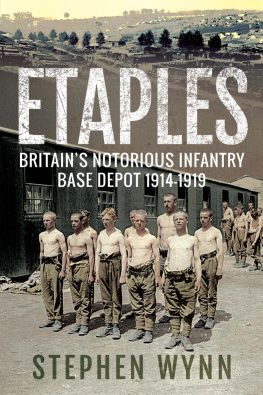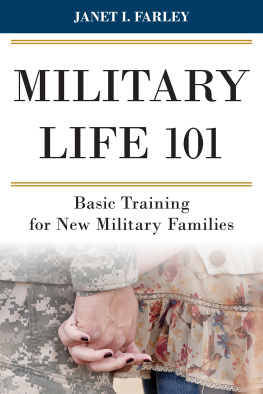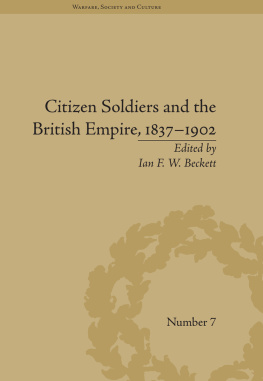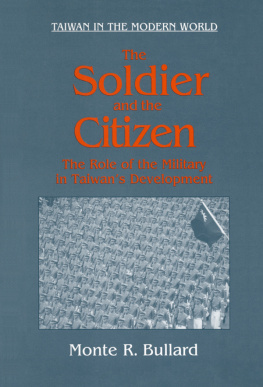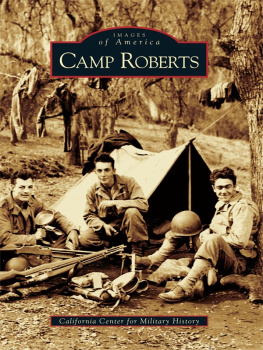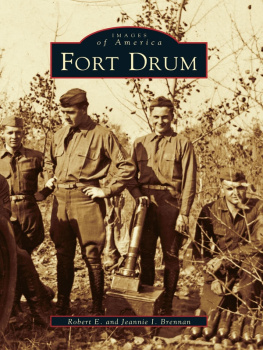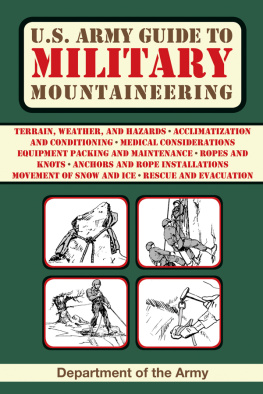Copyright 1972, 2015 by The University Press of Kentucky
Scholarly publisher for the Commonwealth,
serving Bellarmine University, Berea College, Centre
College of Kentucky, Eastern Kentucky University,
The Filson Historical Society, Georgetown College,
Kentucky Historical Society, Kentucky State University,
Morehead State University, Murray State University,
Northern Kentucky University, Transylvania University,
University of Kentucky, University of Louisville,
and Western Kentucky University.
All rights reserved.
Editorial and Sales Offices: The University Press of Kentucky
663 South Limestone Street, Lexington, Kentucky 40508-4008
www.kentuckypress.com
Cataloging-in-Publication data is available from the Library of Congress.
ISBN 978-0-8131-5407-7 (pbk. : alk. paper)
ISBN 978-0-8131-5444-2 (pdf)
ISBN 978-0-8131-5443-5 (epub)
This book is printed on acid-free paper meeting
the requirements of the American National Standard
for Permanence in Paper for Printed Library Materials.
Manufactured in the United States of America.
| Member of the Association of
American University Presses |
To Wunderli, Larry, and Ruth,
who know all about magic
Preface to the New Edition
What should I say about a dissertation and book that I researched and wrote more than forty years ago during the war in Vietnam, in what seems another lifetime? Much of the research for this book was done in Washington, DC, in that surreal year of 19671968, amidst the march on the Pentagon, the Tet Offensive, the assassinations of Martin Luther King Jr. and Bobby Kennedy, and the election of Richard Nixon. I am sure that one of my dissertation readers subconsciously substituted the name of General Westmoreland for General Wood as she read my draft chapters. Interviews with Plattsburg veterans of the erstwhile Great War were a welcome contrast to the contemporary scene, as was a visit to Plattsburg in 1970, where I looked for older military sites not far from the new air force base. More than a decade later, Samuel R. Spencer Jr. and I completed a book about the Plattsburg movements sequel, The First Peacetime Draft (1986), a history of the Selective Service Act of 1940. I also spent several years researching for a biography of Grenville Clark that I never finished. (Fortunately, in 2014, Nancy Peterson Hill published a first-rate biography of that Brahmin attorney who guided the Plattsburg movement in two world wars.) And two years ago, I revisited the First World War by editing and annotating the wartime reminiscences of Robert P. Patterson, another Plattsburg graduate, who later served as President Trumans secretary of war.
Yet, my main interests and scholarly writing over the past forty-plus years, as a diplomatic historian in a political science department, have focused on the history of American foreign policies, and the eighth edition of our textbook in that field, coauthored with my longtime colleague at the University of Connecticut, Thomas G. Paterson, has recently been published: American Foreign Relations: A History (2014). How do I connect my expertise on the somewhat narrow subject of the Plattsburg movement to the larger sweep of American diplomatic history, including the history of the last forty-odd years? In short, what new perspectives can I offer as an older and supposedly wiser scholar?
These are big questions, and I will make only tentative observations. The first comment follows from the sociology of academia and from methodological changes within our disciplines. As history departments have moved away from the traditional political/diplomatic/military history of dead white men, and as political science departments focus more on the history of political institutions, it raises the obvious question of whether we need more social and psychological analysis of groups like the Plattsburg movement. I certainly have profited from Michael Pearlmans pioneering study To Make Democracy Safe for America: Patricians and Preparedness in the Progressive Era (1984), which probes the motives and subsequent careers of several key Plattsburg leaders, especially Theodore Roosevelt Jr. and how and why he tried to live up to his fathers conception of military duty and glory, eventually dying a heros death after D-Day and later being immortalized by Henry Fonda in the movie The Longest Day (1962). Among diplomatic historians, Robert Deans recent Imperial Brotherhood: Gender and the Making of Cold War Foreign Policy (2001) connects the Plattsburg elite war experience of World War I to the Office of Strategic Services and PT-Boat exploits of the next generation of Ivy League military veterans with shared masculine values, eventually culminating in the can-do, cant-lose ethos of the best and the brightest and their descent into the quagmire of Vietnam. Deconstructing gender attitudes, as Kristin L. Hoganson has done for the 1898 war against Spain in Fighting for American Manhood (1998), could certainly be applied in greater depth to the Plattsburgers. Theodore Roosevelts famous retort to the antiwar song I Didnt Raise My Boy to Be a Soldier is worth more than an anecdote. He sniffed that it was like singing I didnt raise my girl to be a mother. I regret that I did not ask some different questions when I interviewed Plattsburg veterans in the years 19681972.
More important, perhaps, are the issues of the draft, voluntary military training, and who should serve in Americas wars. For all of their elitism, the Plattsburgers stood for universal and national service and had much to do with establishing selective service as the method that raised American military forces during the two world wars, Korea, and Vietnam. However unevenly the draft worked, it did establish the principle that military service should be part of a citizens obligation in a democracy. I can remember reading political scientist Clinton Rossiters classic text, The American Presidency (1956), in college and being struck by the fact that he listed military service as a key prerequisite for any serious candidate for the White House. Nonetheless, selective service became the most conspicuous casualty of the Vietnam War. In ending the draft and instituting the All-Volunteer Force, President Richard Nixon proclaimed that upholding the cause of freedom without conscription would demonstrate the superiority of a society based on the dignity of man over a society based on the supremacy of the state. Antiwar activists also condemned the draft because of its alleged unfair deferment practices and because they believed that readily available manpower through conscription made it easier for presidents to wage misguided wars like Vietnam.
How different it is today as we extricate ourselves from so-called small wars in Afghanistan, Iraq, and elsewhere, when only a few members of Congress and the executive branch have served in the military, and even fewer have children in the armed services. With only 6 percent of Americans under the age of sixty-five having had any military experience by the year 2000, and with the country fighting simultaneous wars in Afghanistan and Iraq with an overstretched mix of enlistees, reservists, and civilian mercenaries, it was not surprising that these unpopular wars sparked far fewer protests than when the draft touchedat least potentiallynearly every American family. For subsequent generations, especially in the current climate when political scientists worry that too many Americans now bowl alone, there is something quaintly reassuring about Theodore Roosevelts oft-quoted claim that, the military tent, where all sleep side by side, will rank next to the public school among the great agents of democratization. By dint of their personal example, the Plattsburgers emphasized that military service should be shared by all segments of the population, something that does not happen under the invisible hand of the All-Volunteer Armys marketplace. Even though young Americans still register for a standby selective service system (an ironic legacy of President Jimmy Carters response to the Soviet invasion of Afghanistan in 1979), most experts agree that nothing short of a large-scale protracted war will suffice to reinstitute the draft. Nevertheless, with increased public concern about the large numbers of veterans suffering from post-traumatic stress, with enlistees and reservists being forced to serve multiple tours of duty in distant theaters, and with trillions of dollars in war costs adding to the federal deficit, it might be appropriate to reexamine the circumstances and motives that prompted some twelve hundred tired business men to trade their plush offices and homes for sixteen rows of brown pyramid tents set on a loping hill beside Lake Champlain at the Plattsburg Barracks in the summer of 1915.


